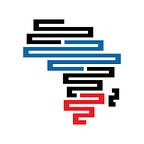Partners shine at international awards
The subjects covered are diverse, but all the projects share a commitment to technology-driven collaboration.
Africa is fast shedding that tired old stereotype of “the Dark Continent”, and embracing the sobriquet “the Data Continent”. Increasingly, governments are opening up data to civil society, and media is turning to data-driven journalism projects. In the last two weeks, we’ve seen evidence of this with a number of awards given to some of our partners, colleagues and friends.
The subjects covered are diverse, but all the projects share a commitment to collaboration, to using technology and data to allow their readers to make sense of complicated stories, and to shared tools and technologies that enable the scaling of stories across the continent.
Nigeria
A great example of how data can be used to make people’s lives better, WanaData member Hannah Ojo’s investigation into water quality in Lagos won the Nigerian Academy of Science media award.
The series of stories was published in The Nation, and studied the the quality of sachet water sold in Lagos. Over a space of three months, 30 sachet water brands advertised as ‘pure water’ were randomly selected and tested by the University of Lagos Consult Limited. Only a few met the World Health Organisation’s standards for potable water.
‘’Test-tube journalism’ — as we’re calling this form of storytelling — is evidence-based data collected by journalists and analysed by reputable labs. It informs real decisions made by citizens — especially around issues affecting health.
Read Hannah’s full series here: “This is Lagos, city of aquatic splendor, dry taps” and a two-part series titled “Poison on Parade; Lagosians risk death by instalments as laboratory tests reveal poisonous contents paraded as pure water”.
Meanwhile, our Code for Nigeria lead Nkechi Okwuone Coker and CfA’s Data Editor Jacopo Ottaviani accepted the Journalism/Official Stats award at the 2018 UN World Data Forum in Dubai. Code for Africa coordinated the establishment of a data journalism desk at the News Agency of Nigeria in partnership with the National Bureau of Statistics.
Okwuone Coker was also celebrated as #BellaNaijaWCW for her pioneering work with Nigerian newsrooms and civic watchdogs.
Oxpeckers
In South Africa, environmental investigative journalism centre Oxpeckers was honoured with the coveted SABEnviroMedia Award for a series of groundbreaking multimedia stories around climate change and anti-poaching.
A year-long investigation into the anti-poaching buffer zone along Mozambique and the Kruger National Park in South Africa combined the technical expertise of Code for Africa’s team with the investigative environmental techniques of the Oxpeckers network of Associates. (Code for Africa partners in this project included africanDRONE, the African Network of Centres for Investigative Reporting (ANCIR), CfA’s Data Lab and satellite image analysis by Radiant.Earth.)
The investigation was funded by the Pulitzer Center on Crisis Reporting and the Bill and Melinda Gates Foundation, with technical support from Code for Africa.
Separately, Oxpeckers associate Yolandi Groenewald also clinched an award under the International Centre for Journalists’ (ICFJ) Global Climate Reporting Programme.
The programme, run in partnership with the United Nations Foundation, received more than 500 applications from journalists around the world. Groenewald was one of just 16 international fellows chosen to attend the four-day programme at the 2018 Global Climate Action Summit in San Francisco.
Groenewald’s story focused on Cape Town’s struggle to secure international climate funding from the South African government, and forms part of data investigations using the Climatracker tool. The tool tracks climate change in southern Africa by making complex climate-related data accessible.
InfoNile
Our partner InfoNile won the top prize at the 2018 Uganda WASH Media Awards for the Swamp City investigation. Journalists Annika McGinniss and Frederick Mugira partnered with africanDRONE’s Christian Onyando and Code for Africa data lab member Fridah Oyaro, to produce a beautifully constructed multimedia story looking at the destruction of a wetland in Kampala, Uganda due to urbanisation.
See the full story here: http://stories.waterjournalistsafrica.com/swamp-city/
Congratulations to all the winners, and we’re looking forward to working with you on more award-winning, meaningful projects that make a real difference to people’s lives.
Code for Africa (CfA) is the continent’s largest federation of data journalism and civic technology laboratories, with labs in four countries and affiliates in a further six countries. CfA manages the $1m/year innovateAFRICA.fund and $500,000/year impactAFRICA.fund, as well as key digital democracy resources such as the openAFRICA.net data portal and the GotToVote.cc election toolkit.
CfA’s labs also incubate a series of trendsetting initiatives, including the PesaCheck fact-checking initiative in East Africa, the continental africanDRONEnetwork, and the African Network of Centres for Investigative Reporting (ANCIR) that spearheaded Panama Papers probes across the continent. CfA is an initiative of the International Center for Journalists (ICFJ).
